For a COVID summer adventure you can’t get any more socially distant than the desert and in located in the middle of Colorado’s high plains is herd of wild horses, just waiting for their photo opp. I’ve lived in Colorado my entire life and I had no idea that wild horses were in my [4 hour away] backyard.
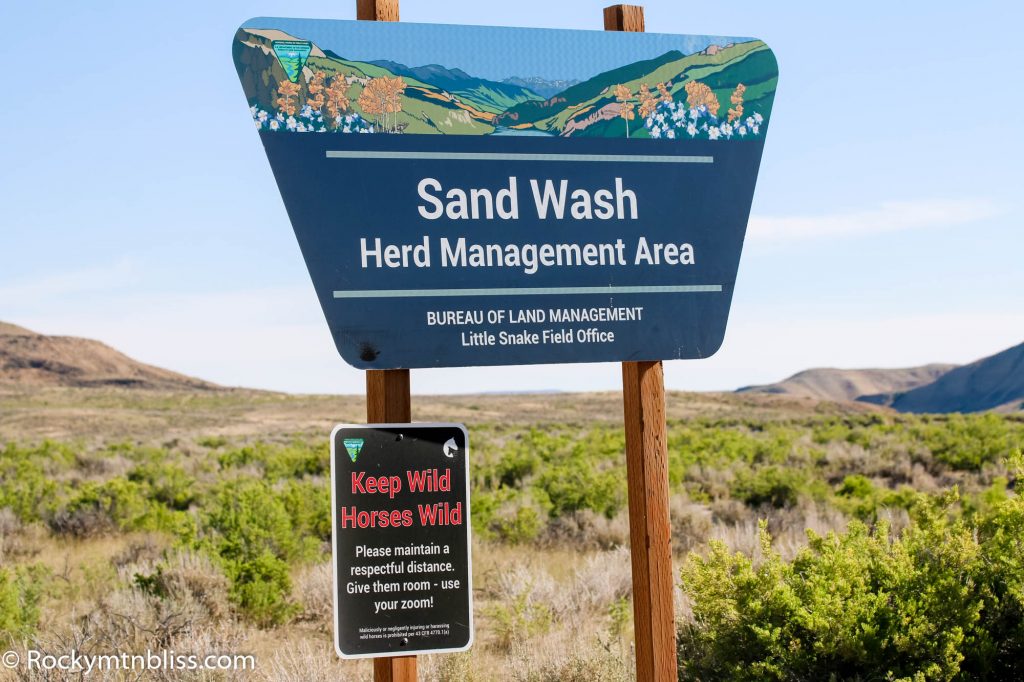
Owned by the Bureau of Land Management Sand Wash Basin is a rustic camping destination 48 miles outside the town of Craig, Colorado. Without any amenities and limited cell service inside the herd management area, the nearby Maybell Campground [Maintained by the town of Maybell] offers access to restrooms, showers and established campsites if completely roughing it isn’t your style.
Make sure you have a full tank of gas and plenty of water because once inside the BLM land there are no stops and even fewer people. With an elevation of 8,120 feet Sand Wash Basin doesn’t look like the mountains but if you aren’t used to the altitude you’ll want to be prepared. Officially deemed a ‘high desert’ the basin is home to fossils from it’s prehistoric history as a large lake and surrounded by ridges and mesas.
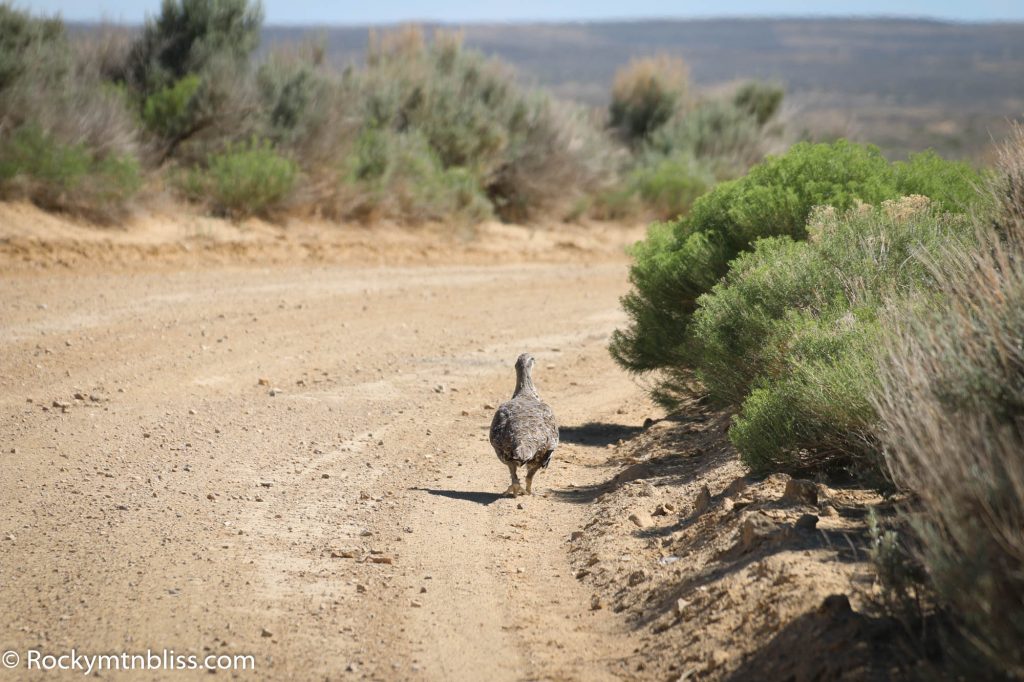
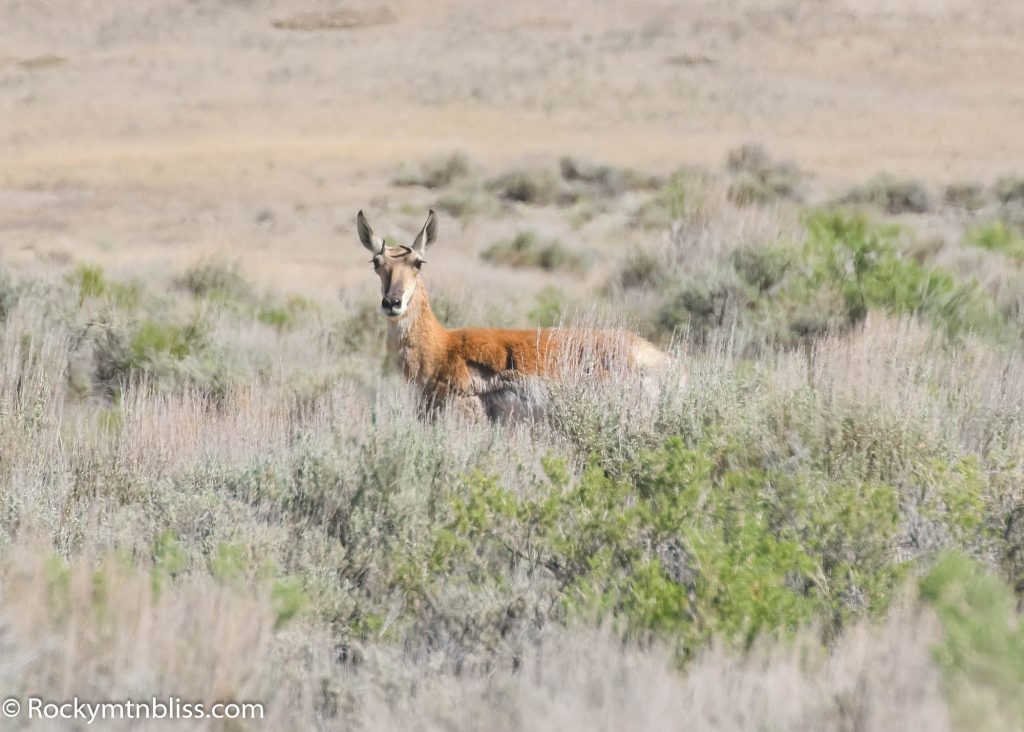
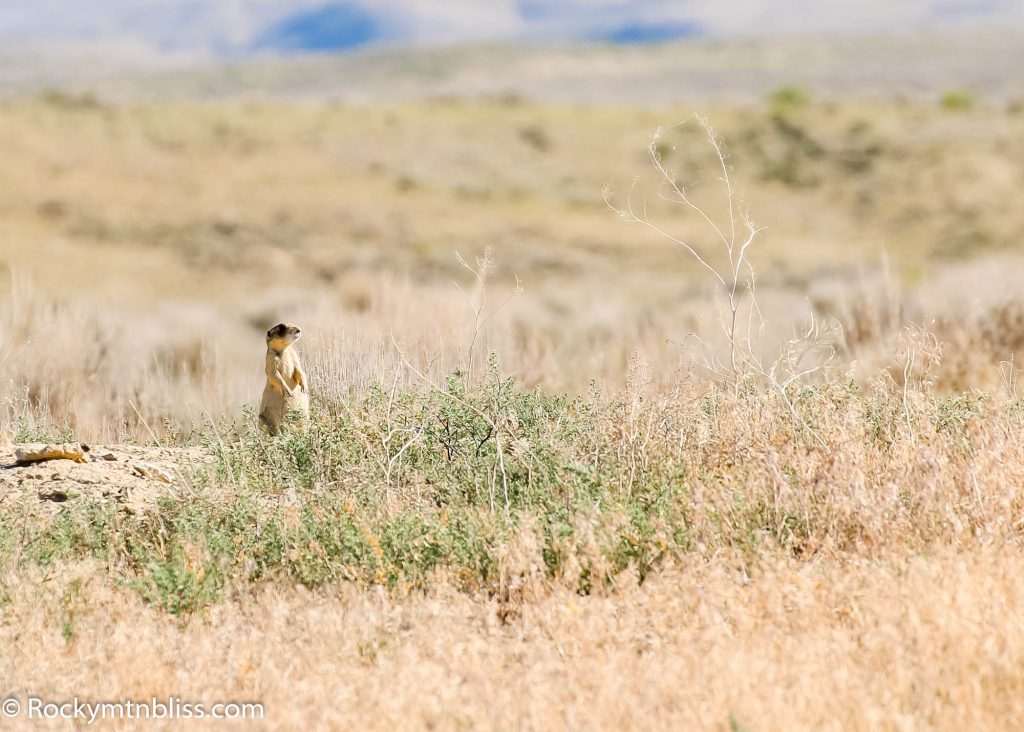
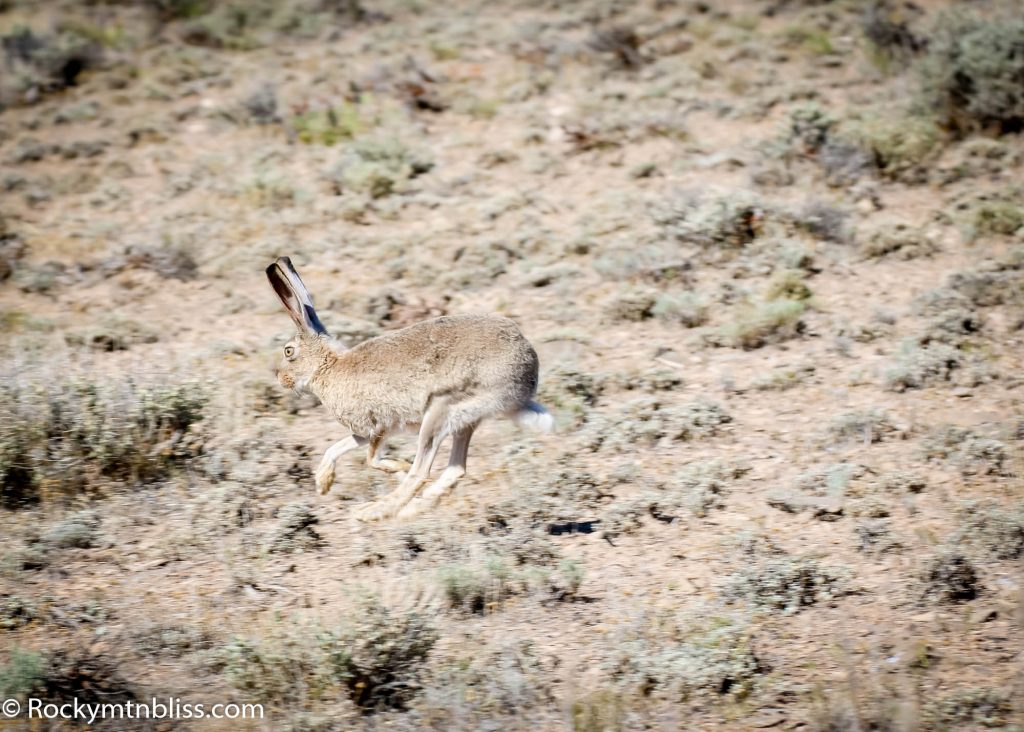
We started the day early, heading out just after sunrise and caught antelope, coyotes, jackrabbits and prairie dogs enjoying the cool morning air. Once inside the Herd Management Area dirt roads require high level 4 wheel drive but the well traveled roads are easy to maneuver. The Wild Horse Loop provides easy access to areas frequented by the bands and offers a day long journey through the area.
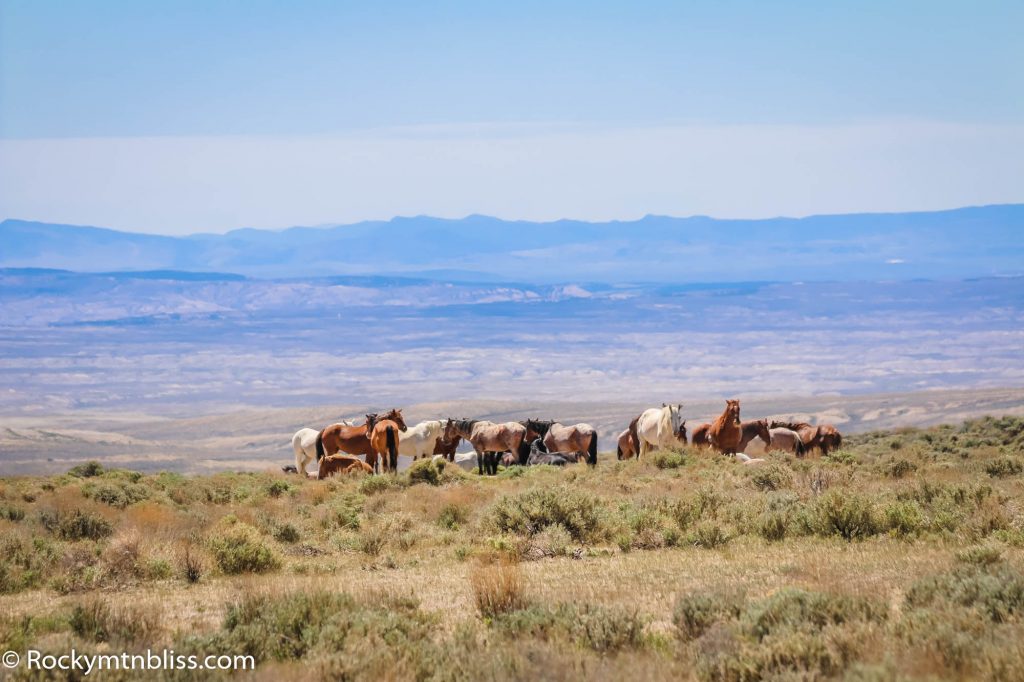
Wild horses live in bands or harems led by individual stallions. A single male maintains a group of female horses, protecting them from other stallions and encouraging offspring to leave the herd as they grow older. Inside the Sand Wash Basin the herd is maintained by annual round ups where females are darted with contraception to manage the population. Most bands we came across included a single male with 4-5 females.
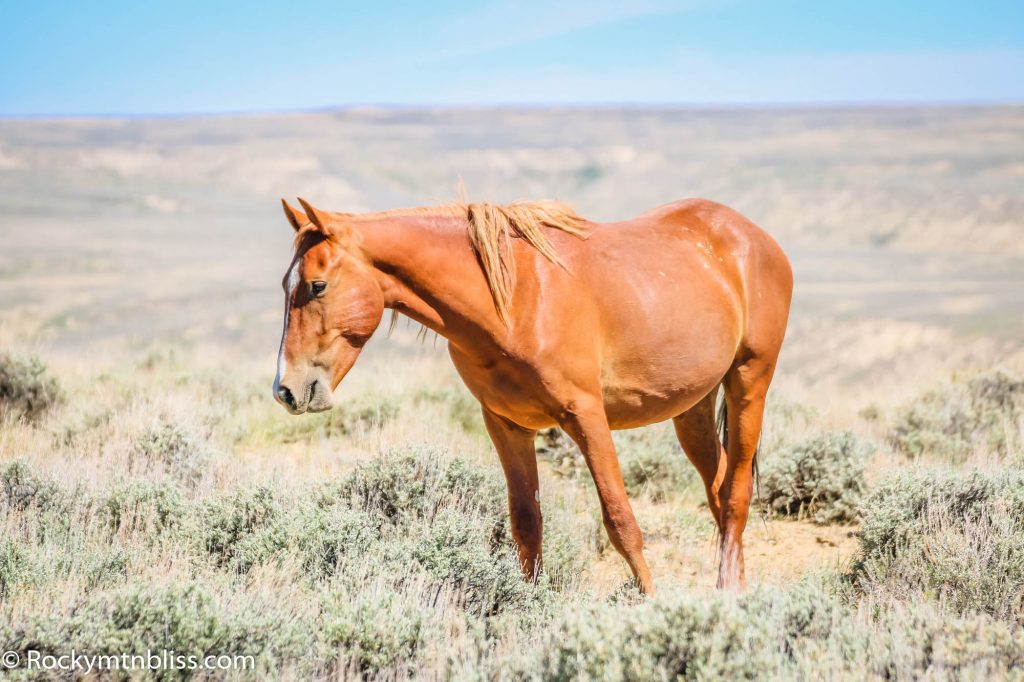
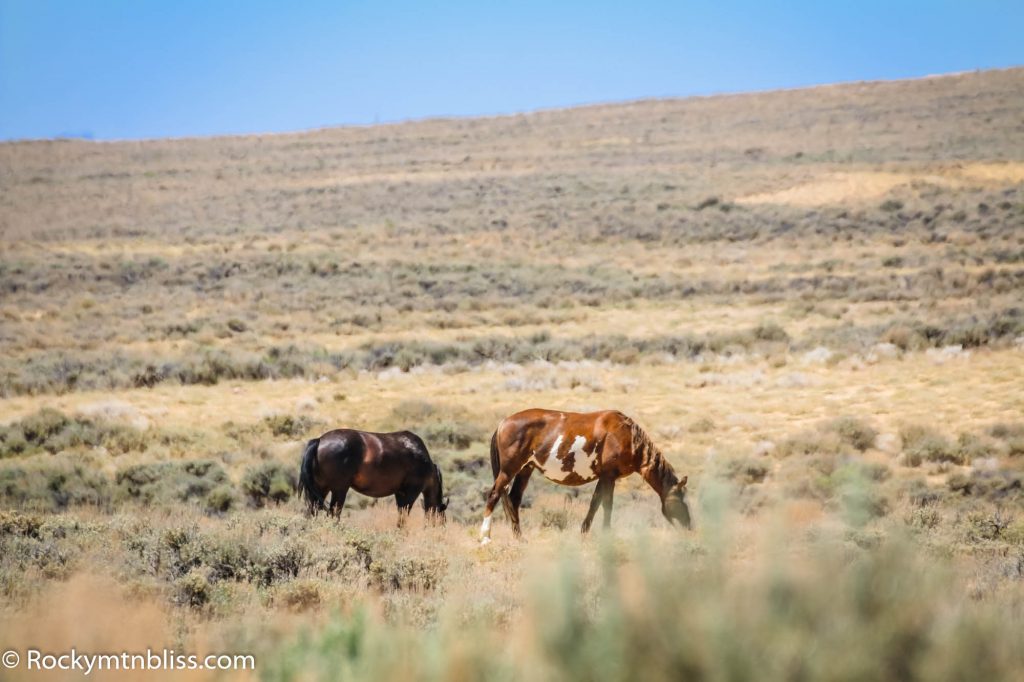
While driving through the preserve it was important to pay close attention to the road, as animals would approach closer than anticipated. The BLM requires the use of zoom lens for horses and a distance of 100 feet but it was still easy to the animals themselves to sneak up on you. We had a group of antelope jump directly in front of the car!
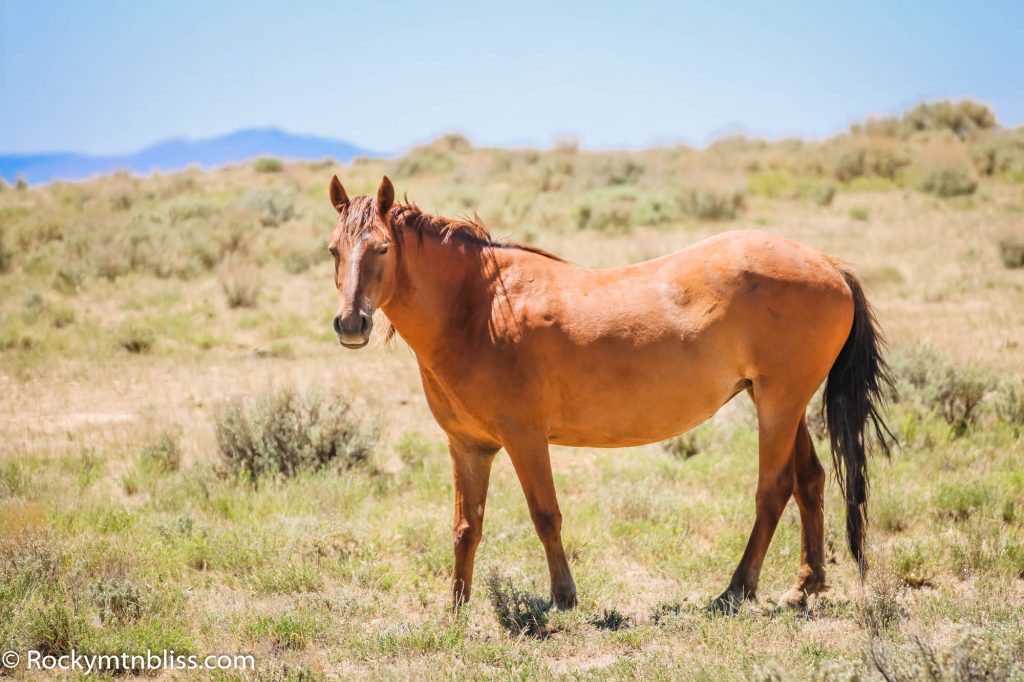
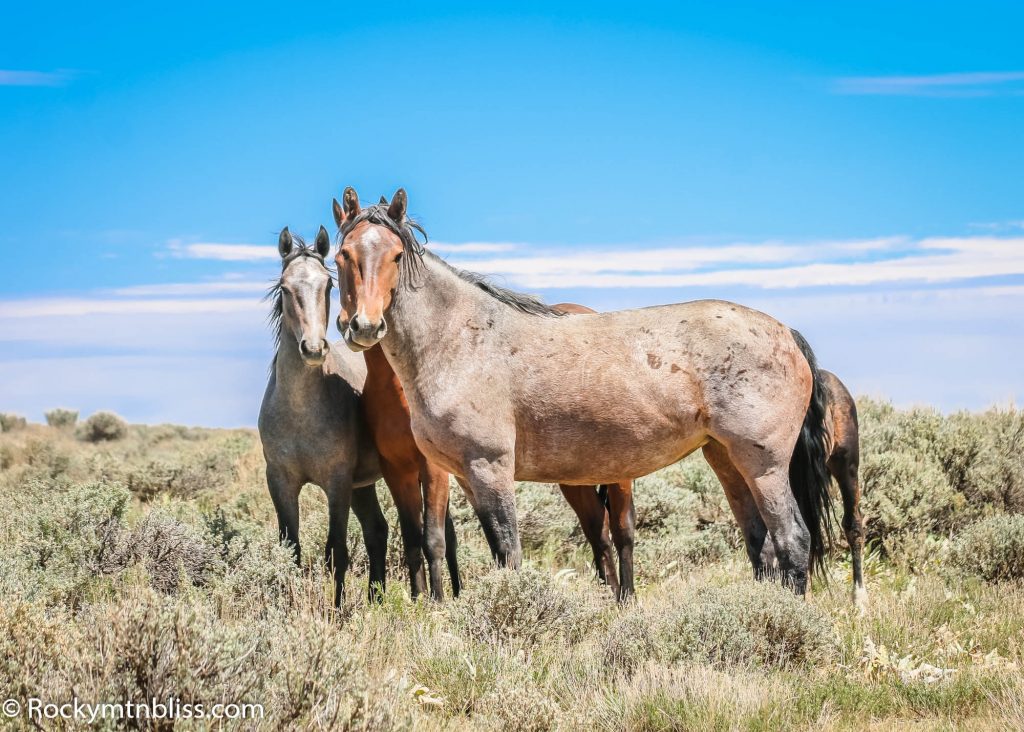
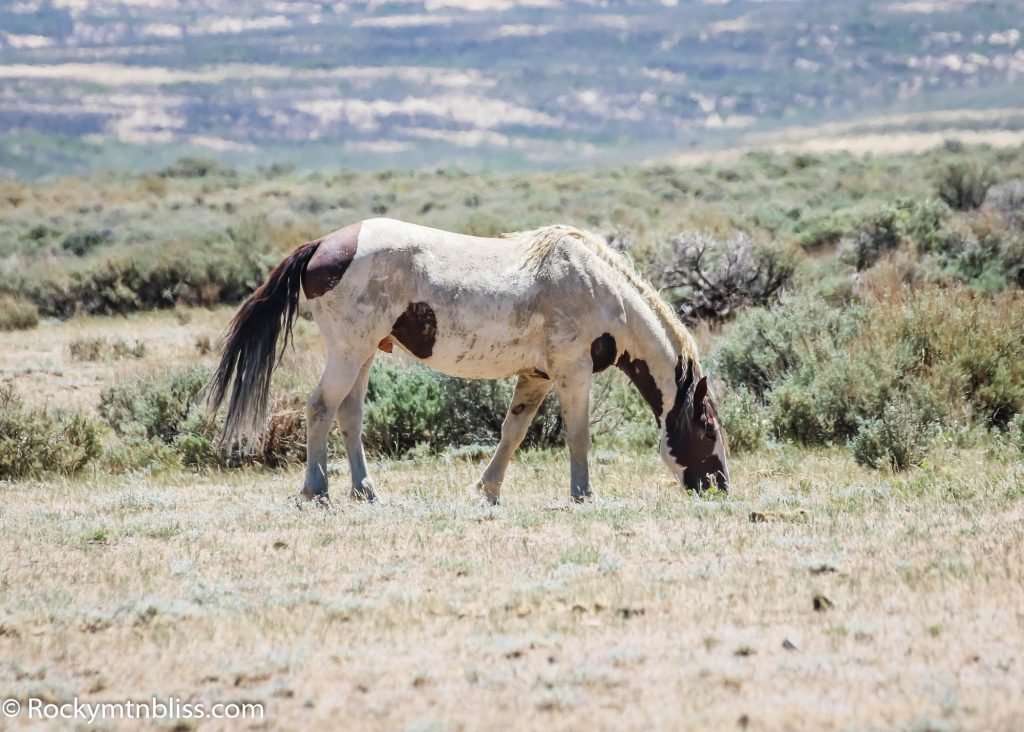
Sturdy shoes and long pants are recommended for taking footpaths leading away from the road. Rattle snakes are common in the area so paying close attention if departing from the car is important.
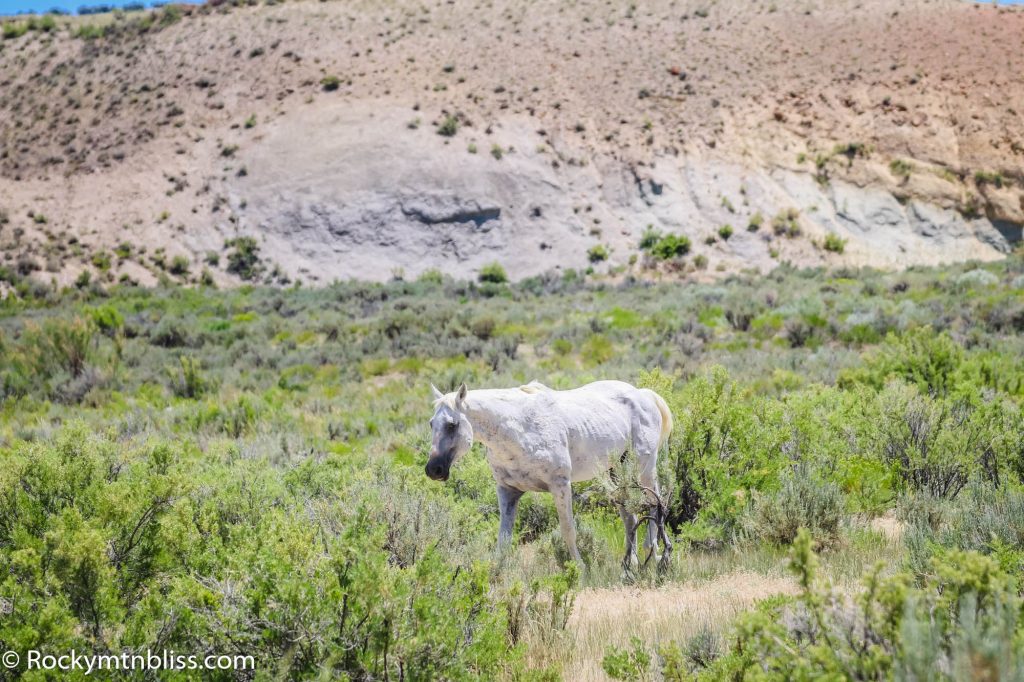
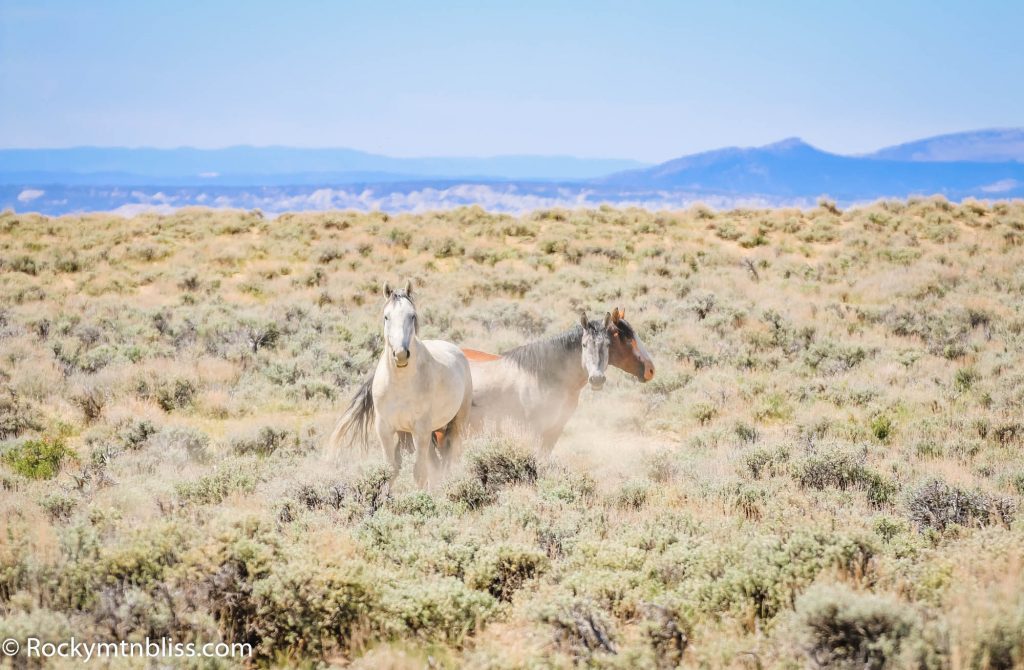
The surrounding sagebrush makes walking in the hot sun an even more amazing experience. Summer sun heats the sage filling the air with the sweet spicy aroma. Driving with the windows down means tons of sand so be prepared to give the entire car a good cleaning after the trip.
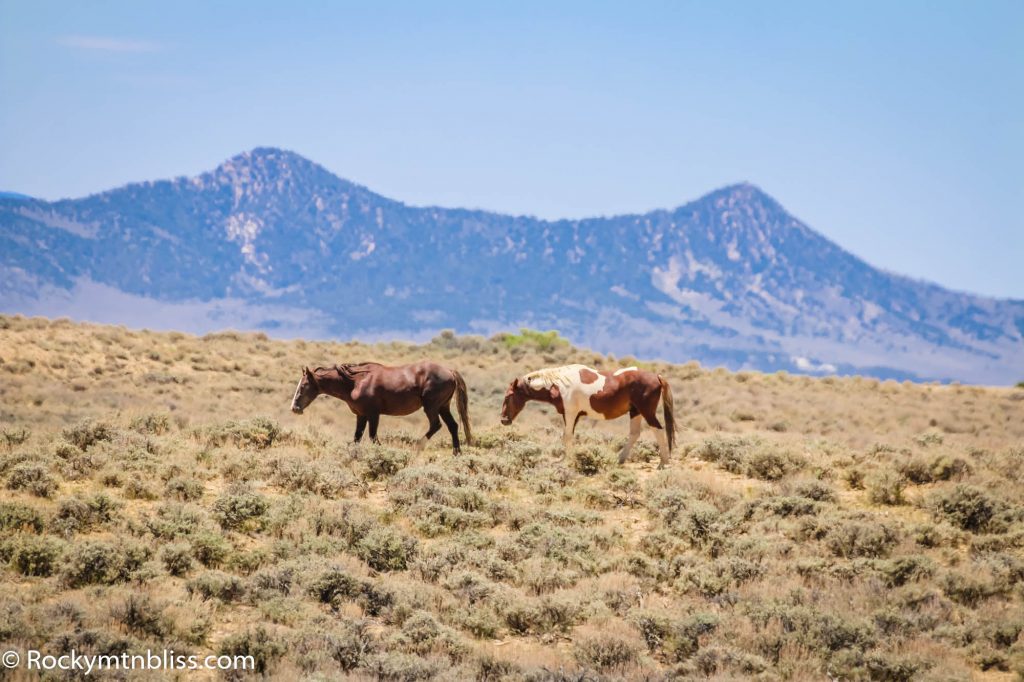
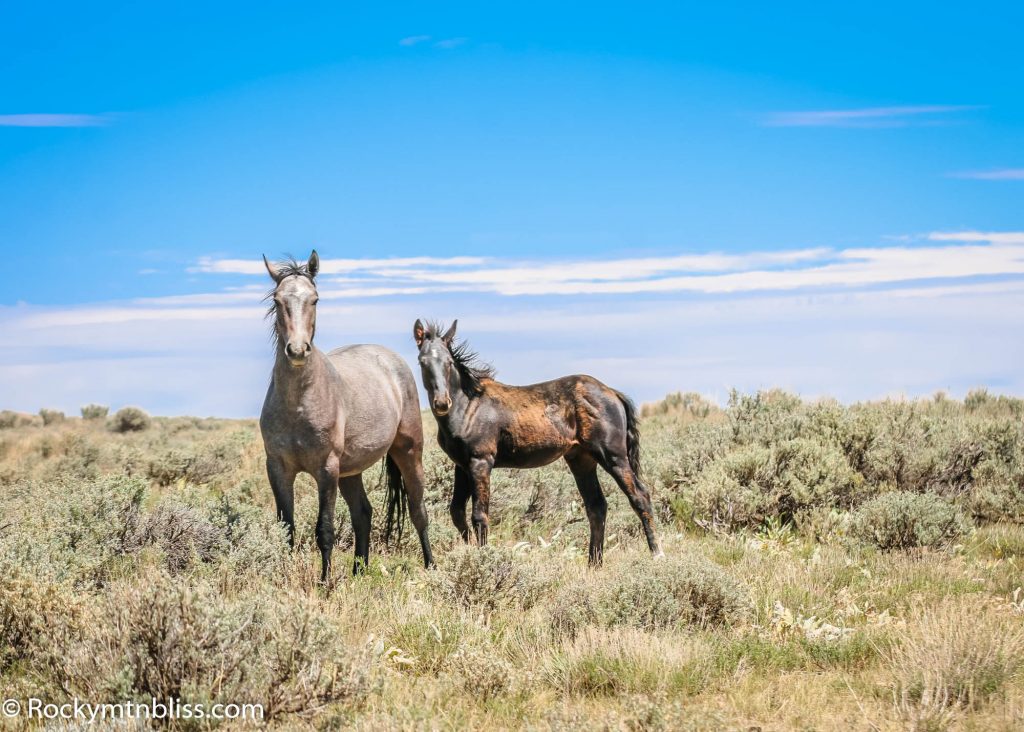
We spent approximately 6 hours inside the Herd Management Area and came across at least 100 horses, not including the other animal encounters throughout the day. For a weekend trip, this was the perfect way to enjoy the beauty Colorado has to offer, all while keeping a safe and healthy distance from others.
Visiting Sand Wash Basin to see Wild Horses
- Wild Horses of Sand Wash Basin: Volunteer group
- Sand Wash Basin Herd Management: BLM Information
- Visit Moffat County: County Visitors information
- Recommended Camera Gear: Zoom Lens
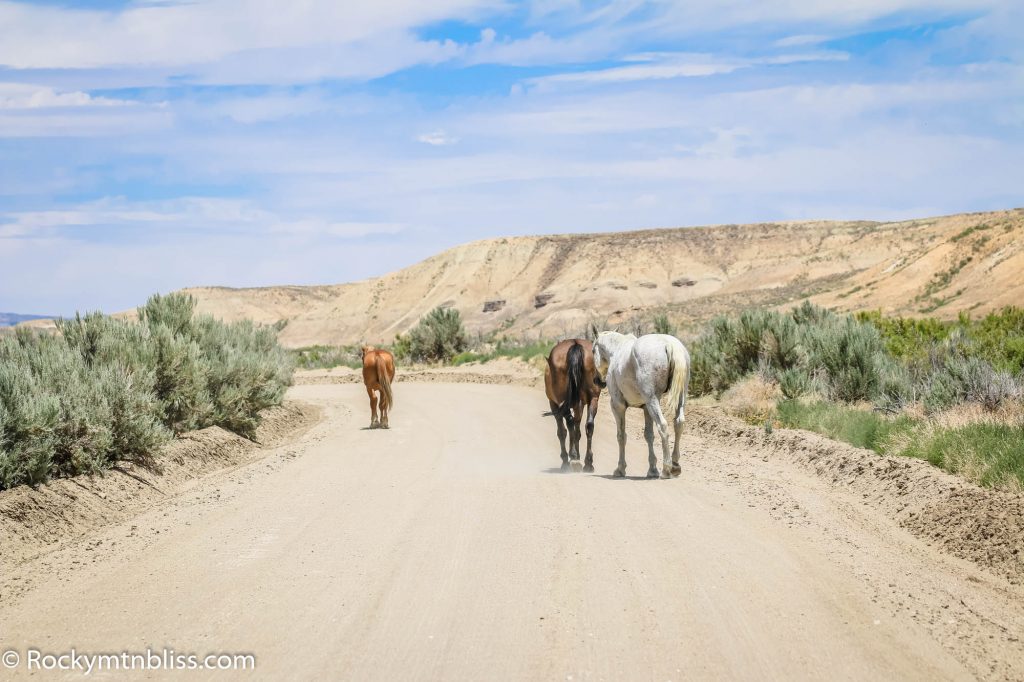
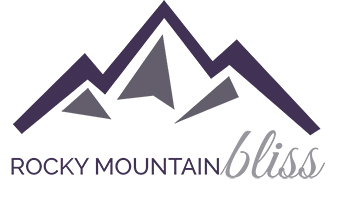

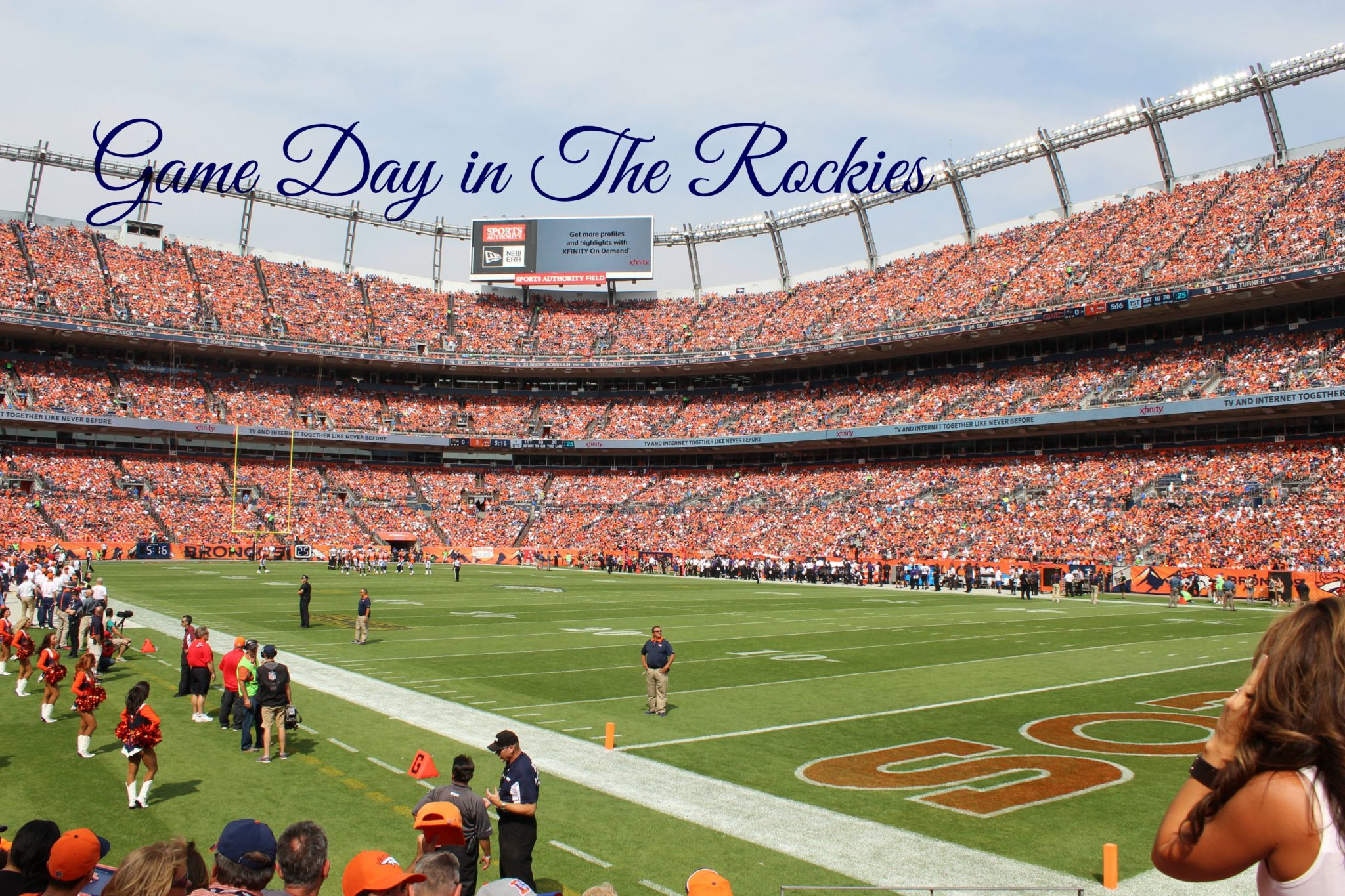
7 Comments
Nadja Rider
July 14, 2020 at 7:12 pmSand Wash Basin wild horses are NOT rounded up annually, nor are any stallions gelded. Mares are darted in the field by volunteer darters. Correcting this in your blog would be appreciated. Thank you.
Annie
July 14, 2020 at 9:54 pmThank you for the additional information Nadja. I had pulled this information from the BLM website so it must have been referring to their standard and not all herds. The post has been updated.
Nadja Rider
July 15, 2020 at 12:01 pmThank you for correcting about gelding, however the mares are not rounded up. Volunteers go into the field to find the bands and dart the mares individually. Some of the BLM’s generalizations are not accurate for all HMAs.
Sara
January 9, 2021 at 5:58 amSorry if this comes across as rude, but other human beings are allowed to document the experience they had at Sand Wash. Its GREAT that you devote so much time to the horses, Nadja. However, your name really doesn’t need to be on every single piece of literature, does it? I mean, you don’t work for the BLM or anything.
Larry Hoover
August 21, 2021 at 3:06 pmI live near sand wash basin. Please amend the altitude in your article since it is no greater than 6000 ft.
Elizabeth Green
September 18, 2021 at 5:20 pmWell, they hauled off most of the horses this month. So much for the tourism angle. The hair stood up on the back of my neck when I read “owned by the Bureau of Land Management”. The Sand Wash Basin and every other place like it is PUBLIC LAND. That means it belongs to you and me. It’s an enormous responsibility that most easily shrug off by making the government or corporations responsible for life on earth. May I recommend some informed reading on the subject: This Land: How Cowboys, Capitalism, and Corruption are Ruining the American West by Christopher Ketchum. Otherwise, thank you Annie for suggesting that people get out of the house. I hope they can find some of those wild horses.
Melody Sue Edwards
September 19, 2021 at 1:41 pmI couldn’t believe they said they owned the land.
We need separate management of the equines because the BLM only care about the cows and sheep and are slaughtering these horses and burros.
When is something going to be done, all the Blm cares about is mining operations, cattle and sheep. Our horese are vermin to them they want to get rid of them.
The PRESIDENT needs to address this and have separate management other than the BLM for our equines